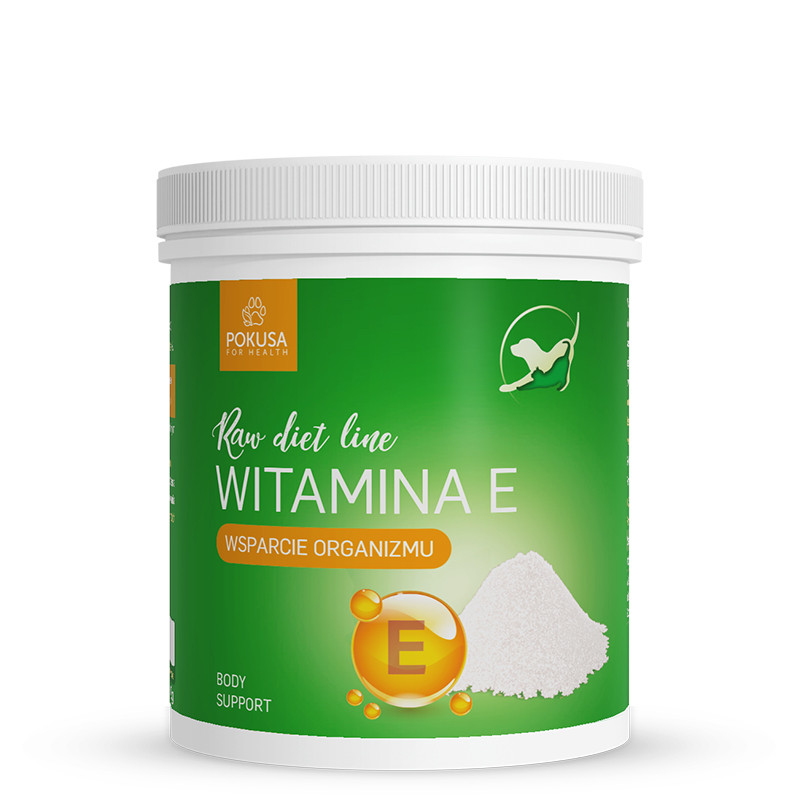
Vitamin E is a group of organic chemical compounds,
to which we include two groups tocopherols and tocotrienols. Each of them has four forms: alpha, beta, gamma and delta. It is an extremely important dietary component for both dogs and cats. It is not produced by the animal's body, therefore it must be supplied with food. Similar to vitamins A and C it is a strong antioxidant, which plays an important role in protecting cells from damage caused by free radicals, whose levels rise most often as a result of stress.
It is one of the fat-soluble vitamins (A, D, E, K). It can be used in all diseases that disrupt fat absorption, in cancer therapy and as general support for the whole organism.
Vitamin E is stored mainly in adipose tissue. Its deficiency leads to apathy, loss of appetite, deterioration of vision – damage to the retina, the immune system, weakness of muscles, to impairment of reproduction, and even to coma.
It is also used to extend the shelf life of the product it is a natural preservative. It prevents undesired changes occurring during storage of dry foods.
Its concentration changes (decreases) with age - senior dogs and in pregnant bitches. Sick animals may also have reduced vitamin E concentration in the blood.
The regenerative action of vitamin E has enormous significance for the construction of the skin, the appearance of the coat, and the processes of wound healing (it slows down the aging processes of the skin, moisturizes it and nourishes it).
It also contributes to the proper functioning of the immune system, which may result from the influence of antioxidants on free radicals and oxidative stress, which contributes to the development of, among others, heart diseases.
Foods containing vitamin E include, among others:
- almonds,
- hazelnuts,
- fish,
- vegetables such as: carrots, tomatoes, peppers.
Usually overdosing vitamin E is very difficult, and deficiency occurs rarely. Pancreatic diseases or intestinal disorders leading to impaired bile secretion may limit its absorption.
It can be used at any age, but its supplementation should be tailored to the needs of a particular animal, and also consulted with a specialist – a dietitian or a veterinarian.
Regardless of age, gender or breed, vitamin E is an essential element of your pet's diet.
Sources:
https://pubmed.ncbi.nlm.nih.gov/7325428/
https://pubmed.ncbi.nlm.nih.gov/6824224/
https://pubmed.ncbi.nlm.nih.gov/17300820/
https://pubmed.ncbi.nlm.nih.gov/25660045/


